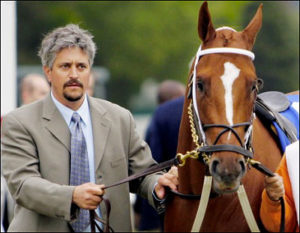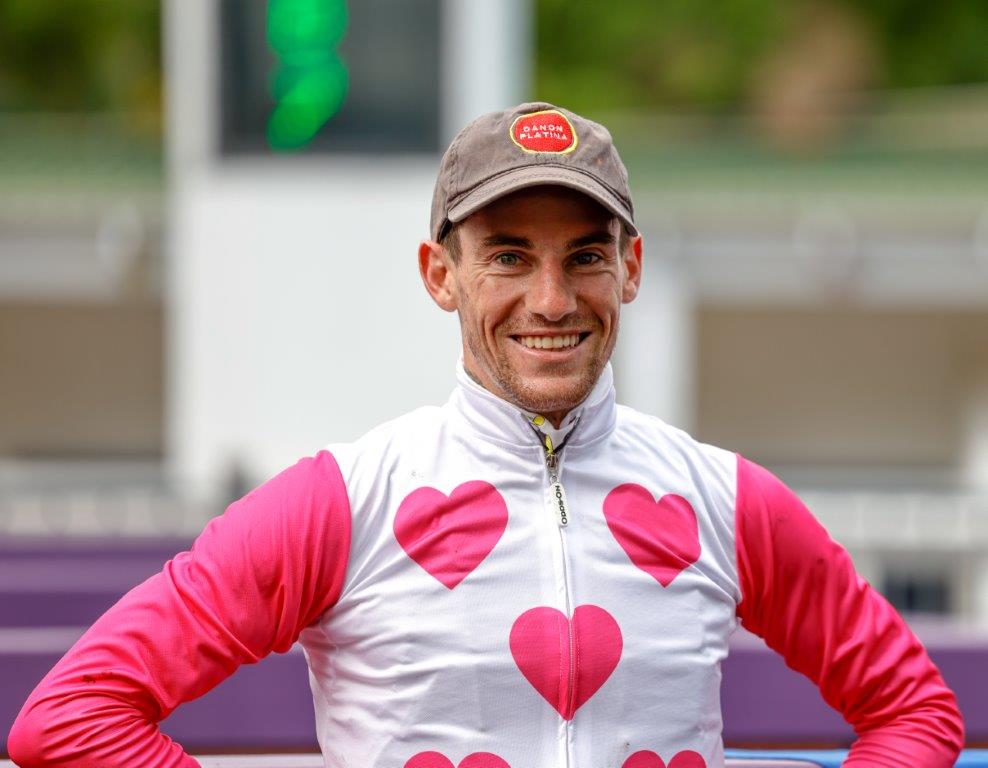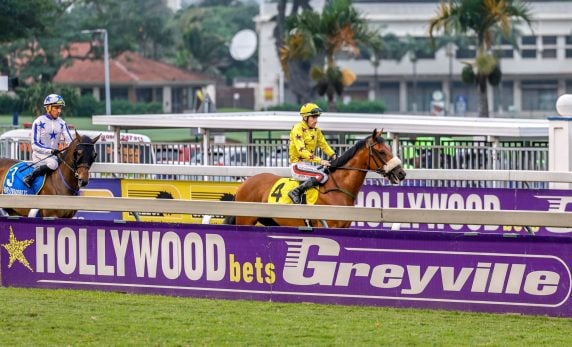Earlier this month, the National Museum of Racing and Hall of Fame announced the 10 finalists for its 2014 class of inductees.
From 84 candidates suggested by turf writers, Thoroughbred industry participants, and racing fans, the Hall of Fame’s nominating committee had selected four jockeys, four horses, and two trainers whose names would go to the voters, with the winners announced on April 25.
Already controversial, the nomination of trainer Steve Asmussen became even more contentious when the New York Times last week published the results of an investigation undertaken for four months last year by People for the Ethical Treatment of Animals (PETA), alleging abuse of the horses in Asmussen’s care at Churchill Downs and Saratoga Race Course.
Response from the general public and the racing industry was swift. Within hours, writer Bill Finley had posted a column saying that he had asked for and received permission by the Hall of Fame to rescind the votes he had cast for Asmussen and Curlin, the horse that Asmussen had trained to two Horse of the Year titles.
Last Thursday night, The Jockey Club president and COO James Gagliano tweeted his support for removing Asmussen from the ballot.
Tough issue for HOF Nom committee, but it seems clear to me that they should immediately pull Asmussen as HOF candidate. Video sickening.
— James L Gagliano (@jamesgagliano) March 20, 2014
In a follow-up e-mail, Gagliano made clear that he was speaking for himself and not for The Jockey Club.
On Friday morning, Racing Museum and Hall of Fame communications officer Brien Bouyea confirmed that several other voters had asked permission to withdraw their votes for Asmussen, and by that afternoon, Bouyea announced the unprecedented decision to “table” Asmussen’s nomination, effectively removing him from the ballot, “in the best interests of the institution and the sport of thoroughbred racing in general,” according to the Museum and Hall of Fame’s press release. The decision was made by the Museum and Hall of Fame’s executive committee.
Baseball is not the only sport wrestling with reconciling performance on the field of competition with rules violations.
In 2006, Asmussen served a six-month suspension for a medication violation when a horse in his care was found to have 750 times the legal limit of the local anesthetic mepivacaine. In 2010, the Paulick Report published a list of Asmussen’s violations dating to 1990, some of which regard medication, some missing paperwork, some employment issues. According to the website of the Racing Medication and Testing Consortium, Asmussen’s last violation occurred in July of 2010, for failing to administer the anti-bleeding medication furosemide to one of his horses scheduled to race.
Finley acknowledged that Asmussen’s history made voting for his inclusion into the Hall of Fame a difficult decision.
“He wasn’t an automatic because of his background,” said Finley last week. “Baseball voters go through the same thing with the steroid guys; they weigh a lot of different factors.
“But with these guys who run mammoth stables, maybe some drug positives are a result of mix-ups, and I was obviously willing to give him the benefit of the doubt.”
The doubt was removed by what Finley saw in the nine-and-a-half minute PETA video, edited down from more than seven hours of footage.
“What truly bothered me was the culture that exists in the barn, where the welfare of the horse isn’t anything they seem to care about. It portrayed them as ‘win at all costs’ and the horse be damned.”
Finley also admitted that based on the video, it’s unclear whether Scott Blasi, Asmussen’s former assistant who is featured in the video, did anything illegal.
“The industry has to step back,” said Finley, “and look into what’s really going on.”
Asmussen, who appears in the video for only seconds, relieved Blasi of his duties on Saturday.
Reached prior to the decision to table Asmussen’s nomination, Gagliano said, “The Hall of Fame celebrates the Thoroughbred racing industry’s finest participants for their achievements and contributions to the sport. These are disturbing allegations that, if true, would seriously tarnish the accomplishments of any candidate.”
Asmussen trains Tapiture and Untapable, leading contenders in this year’s road to the Kentucky Derby and Kentucky Oaks respectively, for Winchell Thoroughbreds. The Courier-Journal’s Jennie Rees reported on Saturday that the horses will remain in Asmussen’s barn.
Whether the Asmussen controversy will affect Curlin’s chances of being elected to the Hall of Fame remains to be seen. The Museum and Hall of Fame did not, according to Bouyea, consider removing Curlin from the ballot along with his trainer. Curlin won 11 of 16 career starts, including the Breeders’ Cup Classic, the Jockey Club Gold Cup (twice), the Preakness, and the Dubai World Cup. He was voted Horse of the Year in 2007 and 2008 and earned more money–$10,501,800—than any other horse in North American racing history.









